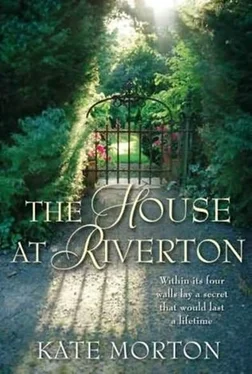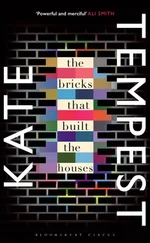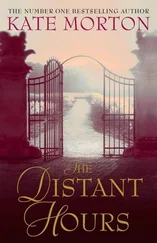In the summer of 1919 Paris basked in the warm optimism of the Versailles Peace Conference. In the evenings I helped Hannah undress, peeled off yet another new gossamer gown in pale green, or pink, or white (Teddy was a man who liked his brandy straight and his women pure), while she told me of the places they had visited, the things she had seen. They climbed the Eiffel Tower, strolled the Champs Elysées, dined in famous restaurants. But it was something more, and less, that appealed to Hannah.
‘The sketches, Grace,’ she said one night as I unwrapped her. ‘Who’d have thought I so adored sketches?’
Sketches, artefacts, people, smells. She was hungry for every new experience. She had years to make up for, years she considered had been wasted, marking time, waiting for her life to begin. There were so many people to speak to: wealthy folk they met in restaurants, politicians fresh from devising the treaty, buskers she encountered on the street.
Teddy was not blind to her reactions, her tendency to exaggerate, her inclination toward wild enthusiasm, but he put her high spirits down to youth. It was a condition, enchanting and bewildering in equal parts, which she would outgrow in good time. Not that he wished her to, not then; at that stage he was still enamoured. He promised her a trip to Italy the following year to see Pompeii, the Uffizi, the Colosseum: there was little then he wouldn’t promise. For she was a mirror in which he saw himself no longer the son of his father-solid, conventional, dull-but the husband of a charming, unpredictable woman.
For her part, Hannah did not speak much of Teddy. He was an adjunct. An accessory whose attendance made possible the adventure she was on. Oh, she liked him well enough. She found him amusing at times (though often when he least intended), well meaning, and not unpleasant company. His interests were rather less varied than her own, his intellect less keen, but she learned to stroke his ego when required and seek intellectual stimulation elsewhere. And if she wasn’t in love, what did it matter? She didn’t notice the absence, not then. Who needed love when there was so much else in the offing?
One morning, toward the end of the honeymoon, Teddy woke with a migraine. He would have others in the time I knew him; they did not come often but were severe when they did, the legacy of a childhood illness. He could do little but lie very still in a darkened, silent room and drink small amounts of water. Hannah was unsettled that first time; she had been shielded, for the most part, from the unpleasantness of illness.
She made an uncertain offer to sit with him, but Teddy was a sensible man not given to extracting comfort from the discomfort of others. He told her there was nothing she could do, that it was a crime not to enjoy her last days in Paris.
I was required as companion; Teddy considered it unseemly that a lady be seen alone in the street, no matter that she was married. Hannah had no wish to shop and had grown tired of being indoors. She wanted to explore, to unearth her very own Paris. We went outside and began to walk. She used no map, just turned in any direction that took her fancy.
‘Come on, Grace,’ she said, time and again. ‘Let’s see what’s down this one.’
Eventually we reached an alleyway, darker and thinner than those that had come before. A narrow path between two rows of buildings that leaned together, the tops embracing to enclose those below. Music drifted along the pathway, threading out into the square. There was a smell, vaguely familiar, of something edible, or perhaps something dead. And there was movement. People. Voices. Hannah stood at the entrance, deciding, then started down the alley. I had little choice but to follow.
It was an artist’s community. I know that now. Having lived through the sixties, having visited Haight-Ashbury and Carnaby Street, I can easily identify bohemian dishabille, the trappings of artistic poverty. But at that time it was all new. The only other place I had ever been was Saffron where there was nothing artful about poverty. We wove down the alley, past little stalls and open doors, sheets strung to create divisions and spaces, smoke drifting up from sticks releasing a dusty, musky smell. A child with huge eyes, limpid gold, peered, expressionless, from between shutters.
A man sitting on gold and red cushions played a clarinet, though I didn’t know its name then, the long black stick with shiny rings and keys. In my mind I called it the snake. It made music as the man’s fingers pressed all over it: music I couldn’t place, that made me feel vaguely uncomfortable, seemed somehow to describe intimate things, dangerous things. It was jazz, as it turned out, and I was to hear much more of it before the decade was out.
There were tables along the alley, and men sat reading, or talking, or arguing. They drank coffee and mysterious coloured drinks-liquor, I was sure-from strange bottles. They looked up as we passed, interested, uninterested, it was hard to tell. I tried not to meet their eyes; silently willed Hannah to change her mind, turn around and lead us back into light and safety. But while my nostrils were filling with unwelcome foreign smoke, my ears with foreign music, Hannah seemed to float. Her attention was elsewhere. Along the alley walls, pictures were strung, but not like those at Riverton. These were charcoal. Human faces, limbs, eyes, staring out at us from between the bricks.
Hannah stopped before a picture. It was large, and was the only one to include a whole person. It was a woman sitting on a chair. Not an armchair, or a chaise longue, or an artist’s couch. A plain, wooden chair with heavy legs. Her knees were apart and she sat facing directly ahead. She was naked and she was black, luminous in charcoal. Her face stared from the painting. Wide eyes, sharp cheeks, pleated lips. Her hair was wrapped into a knot behind her head. Like a warrior queen.
I was shocked by the painting, expected Hannah to react similarly. But she felt something different. She reached out and touched it; stroked the curved line of the woman’s cheek. She inclined her head.
A man was somehow beside her. ‘You like?’ he said, heavy accent, heavier lids. I didn’t like the way he looked at Hannah. He knew she had money. He could tell by her clothing.
Hannah blinked, as if released from a spell. ‘Oh yes,’ she said softly.
‘You want to buy perhaps?’
Hannah pressed her lips together and I knew what she was thinking. Teddy would not approve. And she was right. There was something about the woman, the painting, that was dangerous. Subversive. And yet Hannah wanted it. It reminded her, of course, of the past. Of The Game. Nefertiti. A role she had played with the unencumbered vigour of childhood. She nodded. Oh yes, she wanted it.
Misgivings prickled beneath my skin. The man’s face remained expressionless. He called someone. When there was no answer he gestured for Hannah to follow. They seemed to have forgotten my presence, but I stayed close to her as she followed him to a small red door. He pushed it open. It was an artist’s studio, little more than a dark hole in the wall. The walls were faded green, wallpaper peeling in long strips. The floor-what I could see of it beneath the hundreds of loose paper sheets scarred with charcoal-was stone. There was a mattress in the corner, covered with faded cushions and a quilt; empty liquor bottles were strewn around its edges.
Inside was the woman from the painting. To my horror she was naked. She looked at us with interest that was quickly extinguished, but didn’t say anything. She stood up, taller than us, taller than the man, and walked to the table. There was something in her movement, a freedom, a disregard for the fact that we were watching her, could see her breasts, one larger than the other, that unnerved me. These weren’t people like us. Like me. She lit a cigarette and smoked it as we waited. I looked away. Hannah didn’t.
Читать дальше












